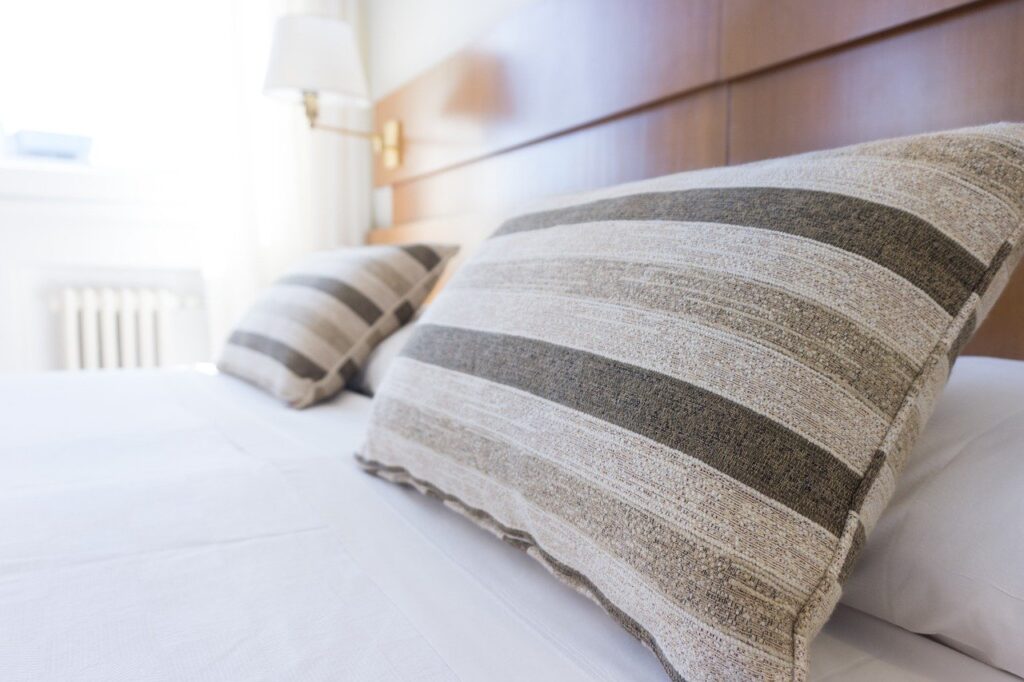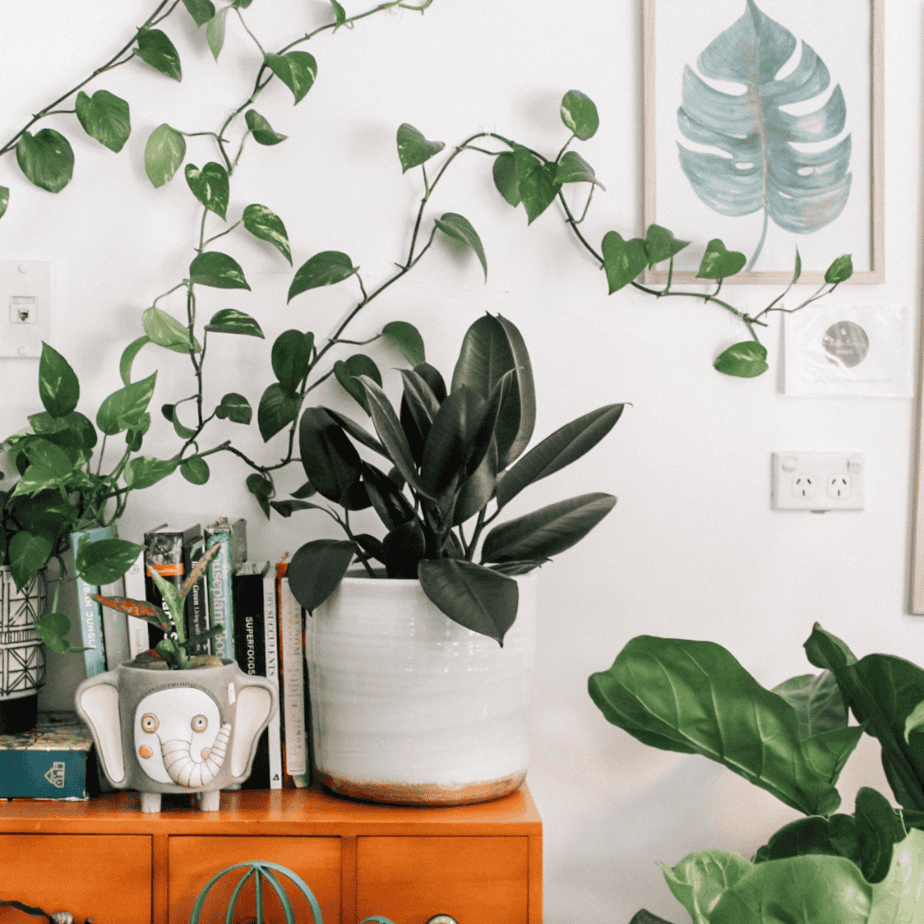Your bedroom design plays a significant role in your quality of sleep. Apart from psychological symptoms of depression and stress, a flawed bedroom design is one of the reasons for insomnia. Part of sleep hygiene is designing your bedroom to make it suitable for you to fall and stay asleep until your wake-up time; it is essential for a goodnight’s rest. Designing your bedroom involves creating a relaxing ambiance through a visual and practical setup, including smell, lighting, and sound. Here are bedroom design tips to consider for better sleep.

Minimize Clutter
When there’s clutter in your room, it can generate stress; this is one of the barriers to quality sleep. Clutter, for example, too many disorganized and dirty clothes, trash in the dust bin, shoes all over the place, and books create a sense that there are too many loose ends. They generate anxiety and make it difficult for your mind to relax when it’s time to sleep.
Although you may not go full-on, Marie Kondo, try and keep your bedroom organized. Identify the things that you don’t need and spare a few minutes daily to remove clutter. This way, it doesn’t build up, and the overwhelming feelings of anxiety reduce, giving you better sleep.
Place Your Bed in the Ideal Spot
Ideally, the majority of the people place their beds where there’s ample space, but there’s a lot more to consider. Identify a spot where there’s natural light streaming in your room. Instead of having your headboard against your windows, let it be against the wall. Ensure that you place your bed in a way that maintains your room’s functionality; leave enough room to open doors, closets and move around for easy navigation.
Personalize Your Room
The same way you look forward to decorating the rest of your home to make it more yours, the same way you should personalize your bedroom. This way, you enjoy spending time in your room because it feels like a haven to relax. Otherwise, if you don’t like your room, you wouldn’t enjoy sleeping in it. Take your time to pick furniture and décor that speaks to your personality, and eventually, your room will feel like a treat after a long day.
Pay Attention to Lighting
Bright lights in your room throw off your sleep; they signal your biological clock that it’s time to wake up. When it’s bedtime, bright lights make it difficult for your brain to sync with the routine, making it harder to feel sleepy. In the morning, it’s okay to use overhead, bright light, but in the evening, use warm white light from the bed lamp or get ideas for hexagon lights.
Use Blackout Curtains and Shades
While allowing in natural light during the day is essential, blackout curtains or shades help keep away light at night. If you tend to sleep past sunrise, maybe due to the nature of your work, these blackout fabrics ensure you get enough and quality rest; they make sure daylight doesn’t stream in too early before your alarm goes off while keeping your room insulated.
Use Darker Shades of Paint
It’s challenging to stay calm and relax in a bright room; it magnifies particular things, like clutter and dirt, and areas that make it harder to fall asleep. However, darker shades create a calming ambiance that gives you a cocoon-like feeling of warmth to aid in your sleep. Use a wall treatment, wallpaper or painting, in a darker hue, but don’t stop there. Ensure that the textures you pick and lighting evoke serenity in your bedroom.
Bring in Plants or Flowers
Plants and flowers are not only beautiful to look at; they bring life and personality into your bedroom. While it’s nice to care for plants in the garden, having them on our bedroom window or dresser can give you something to wake up to. Thriving plants make you happier; they can be the one thing that makes you look forward to going to your room in the evening. Stay committed to caring for them and regularly change flowers to keep your space looking bright and dandy.
Block Distracting Sounds
Bothersome sounds during bedtime, such as someone snoring close by or the neighbor’s loud music, make it difficult to fall asleep and stay asleep. If you keep waking up in the night, your sleep quality reduces, and you wake up feeling tired and irritable. If the noise is something you can’t control, consider white noise, earplugs, or calming music in the background to block it and make it easy to fall asleep. However, if your partner’s snoring is extremely loud and disturbing, let them know; it could be a symptom of sleep apnea.
Keep Your Room Cool
Warm temperatures in your bedroom make it harder to stay asleep; you may wake up in the middle of the night feeling hot and sweaty. According to sleep experts, the best temperature for you to sleep ranges between 60 to 67 degrees Fahrenheit. Instead of leaving your air conditioning on all night, go greener by installing a ceiling fan, opening windows during cool evenings, or using a smart thermostat that goes off automatically and sets it according to the temperatures that feel comfortable.
Banish Electronics
The majority of the bedrooms today have a television. However much it feels relaxing to stay back in bed while enjoying your favorite shows or movies, studies prove that television steals away from your sleep. From watching one episode of a series, the second and third, and before you know it, you only have a few hours left for rest. Additionally, blue light and sound from the TV and other electronics, such as your smartphone or computer, prevent your body from regulating sleep and allow you to get into a deep sleep. For kids and infants, watching television before bed leads to problems like anxiety.
Quality sleep is essential for good health; if you’re not getting a good night’s rest, your body cannot replenish energy reserves and immunity to fight diseases and get you through the day. Design your bedroom to create a calming ambiance for better sleep; include nature, warm lights, blackout drapes, and do away with electronics.




Leave a Reply